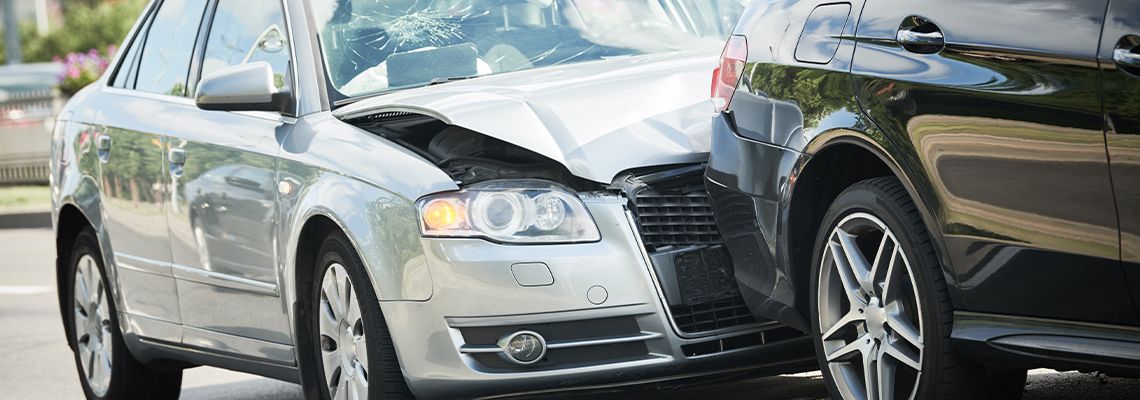Through It All Reach Out Today

What to do After Being Rear-Ended?
Being rear-ended can be an unsettling experience. Whether it happens on a bustling street or a quieter road, the aftermath can be more than just a fender bender—it can be a life-altering event. At Denning Law Firm, LLC, our father-daughter team offers dedicated legal support in Missouri - Kansas City, Overland Park, Olathe, Shawnee, Leawood, and Lenexa, and in Kansas City, Kansas.
Getting legal assistance right away is important for several reasons. Not only can it help protect your rights, but it also means you have someone on your side who knows the ins and outs of local laws and procedures.
This is particularly important if you've been involved in a rear-end collision, which often involves complicated liability issues. At the Denning Law Firm, LLC, we help you understand your rights and strive for the best possible outcome.
Do This Immediately After a Rear-End Collision
Doing this immediately after being rear-ended can protect your health and support a potential personal injury claim.
1. Check for injuries: Your health should be your number one priority. Evaluate your condition and that of any passengers. Call emergency services if anyone is injured.
2. Move to a safe location: If possible, move your vehicle out of traffic to prevent further accidents. Activate your hazard lights to alert other drivers.
3. Call the police: Even if the accident seems minor, a police report can be critical for insurance and legal purposes.
4. Exchange information: Collect contact and insurance details from all parties involved. This includes names, addresses, phone numbers, driver’s license numbers, and vehicle registration details.
5. Document the scene: Take photos of the accident scene, vehicle damage, and any visible injuries. Note weather conditions, road signs, and any other relevant details.
6. Seek medical attention: Symptoms of injuries might not appear immediately. Seeing a doctor after an accident allows potential injuries to be promptly documented and treated.
7. Notify your insurance company: Contact your insurance provider as soon as possible. Provide them with all the details you have gathered, including the police report number, to ensure a smooth claims process.
8. Keep a detailed record: Maintain a file of all documents related to the accident, such as medical records, repair estimates, and correspondence with insurance companies. This record can be invaluable if you need to pursue legal action.
Rear-End Collision Laws in Missouri
Understanding Missouri laws governing rear-end collision laws in Missouri can help you deal with the legal process and fight for fair compensation. Here are some key points:
Comparative Fault System
Missouri follows a comparative fault system. This means that if you are found to be partially at fault for a rear-end collision, your compensation may be reduced by the percentage of your fault. The accident must be accurately documented to establish the other party's liability.
Statute of Limitations
In Missouri, you have five years from the date of the accident to file a personal injury lawsuit. It is important to initiate legal action within this period to protect your right to seek compensation.
Insurance Requirements
Missouri requires drivers to carry a minimum amount of liability insurance. This includes $25,000 per person for bodily injury, $50,000 per accident, and $10,000 for property damage. Complying with these minimums can protect you in the event of a collision.
Presumption of Fault
In rear-end collisions, the trailing driver is often presumed to be at fault because they are expected to maintain a safe distance. However, this presumption can be challenged with evidence showing that the lead driver stopped suddenly without warning or if there were other contributing factors.
Rear-End Collision Laws in Kansas
Understanding these laws can guide you through the process of seeking compensation after a rear-end collision in Kansas.
Modified Comparative Fault Rule
Kansas follows a modified comparative fault rule, which means if you are found to be 50% or more at fault, you cannot recover any damages. If you are less than 50% at fault, your compensation is reduced by your percentage of fault.
Statute of Limitations
In Kansas, you have two years from the date of the accident to file a personal injury lawsuit. Adhering to this timeline is necessary to protect your right to seek compensation for any injuries or damages incurred.
Minimum Insurance Requirements
Kansas mandates that drivers maintain a minimum level of insurance coverage, including $25,000 per person and $50,000 per accident for bodily injury, along with $25,000 for property damage.
No-Fault Insurance Laws
Kansas is a no-fault insurance state, meaning drivers must carry Personal Injury Protection (PIP) coverage. This allows insured individuals to seek compensation from their own insurance company, regardless of who is at fault, up to certain limits for medical expenses and lost income.
Personal Injury Attorneys Serving Missouri and Kansas
At Denning Law Firm, LLC, our father-daughter duo, William and Paeten, will support you through every stage of your case. We're ready to go to court when necessary and strive to make your voice heard. Our clients rely on our dedicated representation, knowing we're determined to fight for their rights. If a rear-end collision has affected you, reach out to us for assistance in Missouri—serving Kansas City, Overland Park, Olathe, Shawnee, Leawood, Lenexa—and Kansas City, Kansas.
